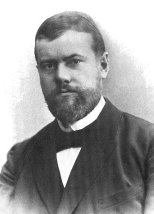For some reason, I’ve managed to miss the very-good Bad Conscience blog up until now. It’s worth a visit, if only to read this post on Max Weber’s notion of plebiscitary Caesars. They are, it seems, the kind of political leaders that we yearn for:
“Weber believed that mass democracy held out the promise of ensuring new kinds leaders emerged; not privileged notables or landed gentry, but men with charisma who could carry the trust of the masses and be propelled forward to exercise genuine leadership in the face of state and party bureaucratic nihilism.”
And, while I know that avoiding the global love-in with Obama is both the hip thing to do, and therefore the right thing, I can’t help thinking that he fits this template more than anyone. Not only was Obama charismatic enough to overcome enormous odds over the last few years, he also practically reinvented the notion of the party machine.
He redefined it – attracting large numbers if low-ticket donations rather than the narrow patronage that political parties have come to rely upon.
There’s another thing to pick up here as well. Google the term ‘post-bureaucratic age’ and you will find that it’s something of a common feature in the speeches of senior modernising Conservatives in recent years. Spookily, it has all of the convenient political utility that the notion of ‘The Third Way’ had back in the 1990s.
I suspect that some Conservatives would argue that Obamas ability to almost reinvent a political party in an organic way made him the first post-bureaucratic President? If so, how come Weber found an Obama-shaped space in his understanding of bureaucratic government?










As with the post-bureaucracy meme, Weber’s leadership doesn’t consider in whose interest this charismatic leadership is wielded. Knowing Weber, it’s in the interest of ‘the nation’, but this manages to completely ignore that there are elements within the nation with diametrically opposed interests, which can’t be reconciled by formal-democratic government.